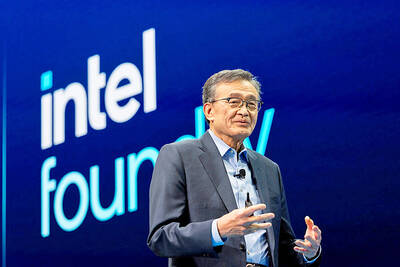President Chain Store Corp (統一超商), operator of the 7-Eleven and Starbucks franchises both here and in China, will cut spending and slow expansion this year because of cooling regional growth.
President Chain expects to spend as little as NT$3.5 billion (US$104 million) this year on new stores and remodeling, compared with as much as NT$4.5 billion last year, said Steve Chen (陳炳宏), a spokesman for the Taipei-based company. Spending in China will fall to as little as NT$500 million from NT$1 billion, he said.
“We’re now more focused on store performance than the number of stores,” Chen said in a phone interview yesterday.
Retail sales fell in the seven months through December as consumers cut spending amid job losses, pushing parent-level sales at President Chain down 0.1 percent last year. China had its slowest economic expansion in seven years, 6.8 percent, in the fourth quarter.
Still, President Chain will add 100 Taiwanese 7-Eleven stores this year for a total of 4,900, the same number it added last year, Chen said. The company originally planned to open 220 shops last year, he said.
Its Starbucks chain will add a net 11 stores in Taiwan and 23 in China this year, compared with a plan to open 18 in Taiwan and 39 in China last year. The company will open its first 7-Eleven stores in China by the end of March, aiming to have as many as 20 by the end of the year, he said.
“Mister Donut was particularly affected by the slowdown in the economy,” Chen said.
The company will shut four of its 46 donut stores in Taiwan this year, opening as many as five in China in a venture with Osaka-based Duskin Co, he said.

Mercuries Life Insurance Co (三商美邦人壽) shares surged to a seven-month high this week after local media reported that E.Sun Financial Holding Co (玉山金控) had outbid CTBC Financial Holding Co (中信金控) in the financially strained insurer’s ongoing sale process. Shares of the mid-sized life insurer climbed 5.8 percent this week to NT$6.72, extending a nearly 18 percent rally over the past month, as investors bet on the likelihood of an impending takeover. The final round of bidding closed on Thursday, marking a critical step in the 32-year-old insurer’s search for a buyer after years of struggling to meet capital adequacy requirements. Local media reports

TECHNOLOGICAL RIVALRY: The artificial intelligence chip competition among multiple players would likely intensify over the next two years, a Quanta official said Quanta Computer Inc (廣達), which makes servers and laptops on a contract basis, yesterday said its shipments of artificial intelligence (AI) servers powered by Nvidia Corp’s GB300 chips have increased steadily since last month, should surpass those of the GB200 models this quarter. The production of GB300 servers has gone much more smoothly than that of the GB200, with shipments projected to increase sharply next month, Quanta executive vice president Mike Yang (楊麒令) said on the sidelines of a technology forum in Taipei. While orders for GB200 servers gradually decrease, the production transition between the two server models has been

US sports leagues rushed to get in on the multi-billion US dollar bonanza of legalized betting, but the arrest of an National Basketball Association (NBA) coach and player in two sprawling US federal investigations show the potential cost of partnering with the gambling industry. Portland Trail Blazers coach Chauncey Billups, a former Detroit Pistons star and an NBA Hall of Famer, was arrested for his alleged role in rigged illegal poker games that prosecutors say were tied to Mafia crime families. Miami Heat guard Terry Rozier was charged with manipulating his play for the benefit of bettors and former NBA player and

BETTER THAN EXPECTED: The firm’s Q3 results exceeded its projections, based on ‘the underlying strength of our core markets,’ chief financial officer Dave Zinsner said Intel Corp returned to profitability and gave an upbeat revenue forecast after PC demand grew, suggesting that it is making progress on a long and challenging comeback attempt. In the third quarter, revenue rose 3 percent to US$13.7 billion. The Santa Clara, California-based company posted its first quarterly net income since the end of 2023, with earnings per share of US$0.23, excluding some items. Analysts had estimated sales of US$13.2 billion and earnings per share of US$0.01 on average, according to data compiled by Bloomberg. Fourth-quarter sales would be roughly US$13.3 billion, the company said in a statement on Thursday. Intel shares gained about